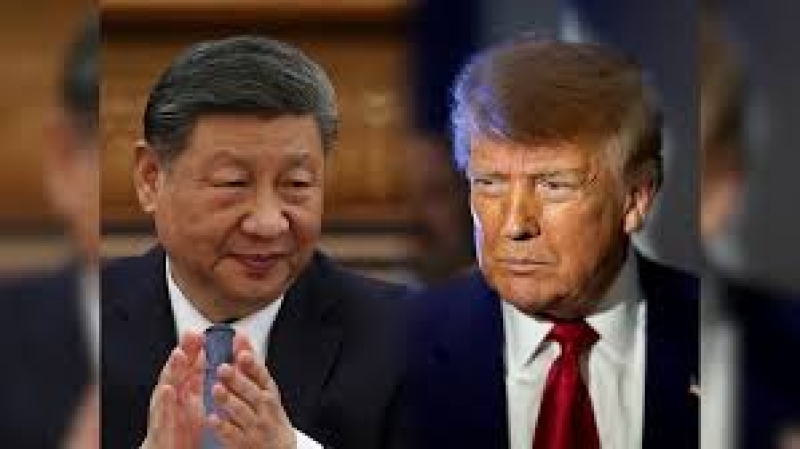- India Sees 9% Drop in Foreign Tourists as Bangladesh Visits Plunge |
- Dhaka Urges Restraint in Pakistan-Afghan War |
- Guterres Urges Action on Safe Migration Pact |
- OpenAI Raises $110B in Amazon-Led Funding |
- Puppet show enchants Children as Boi Mela comes alive on day 2 |
China Vows to Fight Back After Trump Threatens New Tariffs

China vowed on Tuesday to "fight to the end" and implement countermeasures to protect its interests following U.S. President Donald Trump's threat to impose a 50% tariff on Chinese goods.
The Chinese Ministry of Commerce condemned the U.S. move, calling the proposed tariffs "completely groundless" and an example of "unilateral bullying." The statement reiterated that China would take further action if necessary to safeguard its sovereignty and economic interests.
“These countermeasures are lawful and aim to preserve China's security, development, and the normal order of international trade,” the Ministry said. “The U.S. escalation of tariffs is yet another blunder, driven by coercion. China will never yield. If the U.S. persists, we will fight to the end.”
Trump’s latest threat, issued on Monday, has heightened fears of a deeper trade war between the world's two largest economies. Stock markets around the world, from Tokyo to New York, have shown increased volatility in response to the escalating tensions.
The threat followed China’s announcement that it would retaliate against tariffs imposed by Trump the previous week. Trump, in a post on Truth Social, warned that if China did not reverse its recent 34% tariff increase by April 8, 2025, the U.S. would impose an additional 50% tariff on Chinese goods, effective the next day.
If enacted, the new tariffs would push the total U.S. duty on Chinese imports to 104%, combining the 50% increase with a 20% penalty for fentanyl trafficking and the prior 34% hike. These measures could lead to higher costs for U.S. consumers and might force China to reroute cheaper goods to other markets, potentially strengthening ties with the European Union and other trade partners.
During his first term, Trump often highlighted stock market gains as a sign of success, leading some analysts to believe that economic consequences might discourage aggressive policies in his second term. However, Trump has downplayed concerns about market volatility, suggesting he is focused on a long-term goal.
"I don’t mind going through it because I see a beautiful picture at the end," Trump remarked.
Despite efforts by Trump administration officials to defend the tariffs, the financial markets remain uneasy. A brief surge in market optimism followed a false report claiming that Trump might pause tariffs except on China, but the White House quickly dismissed the report as "fake news."
China continues to be one of the U.S.'s largest trading partners, especially in consumer goods. With tariffs functioning as a tax on imports paid by U.S. companies, prices for American consumers could rise. Federal Reserve Chair Jerome Powell recently warned that the tariffs could contribute to inflation, stating that the central bank is monitoring the situation closely.
Meanwhile, European Commission President Ursula von der Leyen said the EU would look for trade opportunities beyond the U.S., emphasizing the "vast opportunities" available elsewhere.
In 2024, U.S. trade with China totaled an estimated $582 billion, making China the U.S.'s top trading partner. The U.S. trade deficit with China that year ranged between $263 billion and $295 billion.

